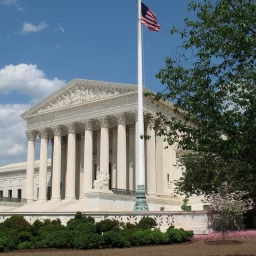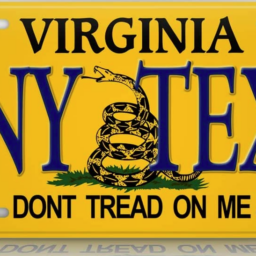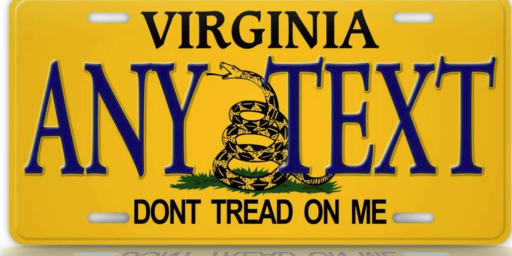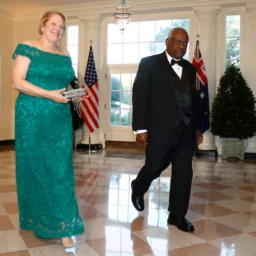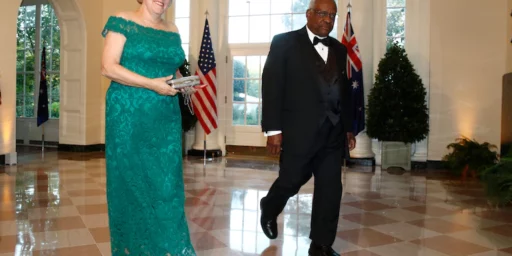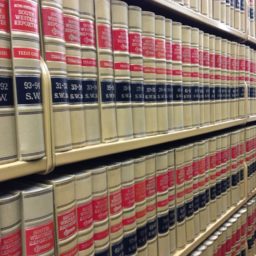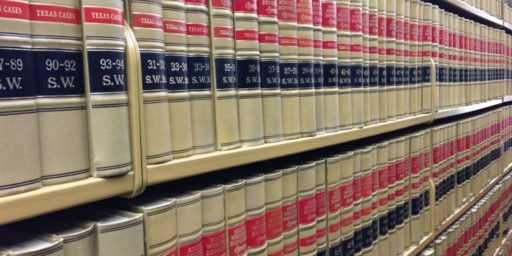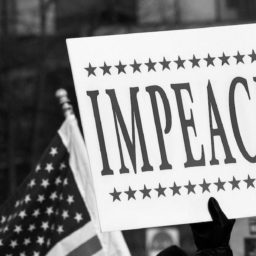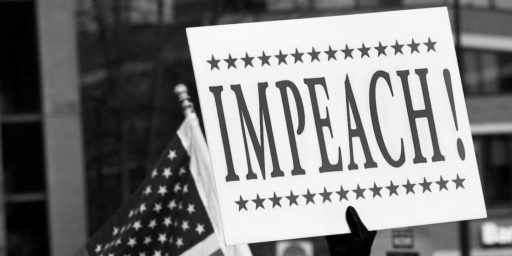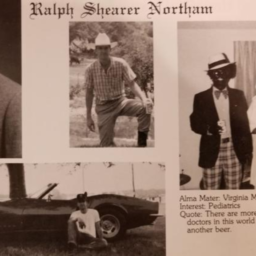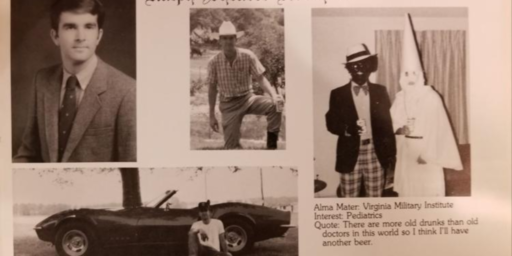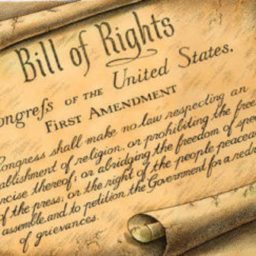

Transphobia, Academic Freedom, and the First Amendment
The 6th Circuit is allowing a professor fired for misgendering a transwoman to sue his state university.
Ousting Trump Early Incredibly Unlikely
The President of the United States is a national security threat. Can we get rid of him now?


Appeals Court Upholds Ruling That Trump Can’t Block People On Twitter
The 2nd Circuit Court of Appeals has upheld a District Court ruling that President Trump cannot block Twitter users from accessing his account.
Arizona Revoking Tax Benefits To Nike Likely Unconstitutional
The attempt by Arizona’s Governor to revoke tax benefits granted to Nike in the wake of the “Betsy Ross Flag” controversy is most likely unconstitutional.
Supreme Court Strikes Down Lanham Act Prohibition On “Immoral” Trademarks
The Supreme Court has struck down a provision of the Lanham Act barring approval of “immoral” or “scandalous” trademarks as unconstitutional.

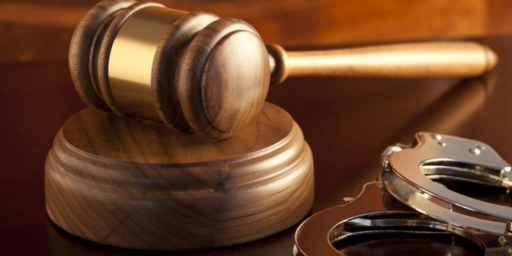
Florida School Guard Who Retreated From Gun Fire Charged
Scot Peterson, the school resource officer who hid from fire during last year’s school shooting in Florida has been charged criminally. The legal basis for those charges seems flimsy.
Census Constitutionally Required to Ask Citizenship Question?
A novel argument, untested in court, suggests that it might.

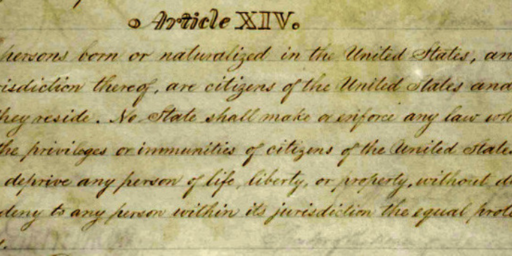
Legal Experts Weigh In On Trump’s Silly Birthright Citizenship Ideas
Overwhelmingly, legal experts agree that President Trump is wrong about birthright citizenship and the Fourteenth Amendment.
Federal Judge Strikes Down State Law Targeting Boycotts Aimed At Israel
For the second time this year, a Federal Court has struck down a state law designed to punish businesses that engage in a boycott aimed at Israel.
Oregon State Agency Alleges Walmart’s Age Restriction on Gun Sales Violates State Law
An Oregon state agency is suggesting that Walmart’s decision to restrict arms sales to bar people under 21, but over 18, from being able to purchase firearms violates state law.
Florida Man Charged In Parking Lot Shooting Despite ‘Stand Your Ground’ Law
A Florida man who shot and killed an African-American male amid a parking lot confrontation will face manslaughter charges after all.
Ninth Circuit Strikes Down Hawaii Law Barring Open Carry Of Weapons
A three-judge panel of the Ninth Circuit Court of Appeals struck down part of a Hawaii law barring open carry of weapons, but this win for gun rights advocates may turn out to be short-lived.
Supreme Court Upholds Final Version Of Trump’s Muslim Travel Ban
In a ruling that largely relies on the authority granted by Congress to the President to regulate immigration on national security grounds, the Supreme Court has upheld the final version of the Administration’s travel ban.


Supreme Court Agrees to Hear Civil Asset Forfeiture Case
We may finally get a ruling applying the Excessive Fine Clause to the states and limiting the ability of police to confiscate property.
Supreme Court Strikes Down Ban On “Political Apparel” At Polling Places
In a significant First Amendment ruling, the Supreme Court has held that a Minnesota law barring “political apparel” at polling places is unconstitutional.


Trump Unblocks Twitter Users, Appeals Ruling That He Can’t Block Twitter Users
President Trump has unblocked Twitter users, but at the same time his lawyers are appealing the ruling that he can’t block Twitter users.
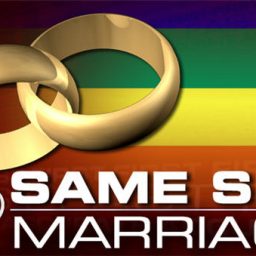

In Narrow Ruling, Supreme Court Sides With Baker In Same-Sex Wedding Discrimination Case
In an exceedingly narrow ruling, the Supreme Court sided with a Colorado baker who refused to bake a cake for a same-sex wedding reception. However, the ruling did not address the broader issues raised by the case.
Federal Judge: Trump Cannot Block People On Twitter For Political Reasons
A Federal Judge in New York has ruled that President Trump cannot block users from reading his tweets.
It’s Time To Eliminate The Presidency’s ‘Natural Born Citizen’ Requirement
The requirement that the President be a “natural born citizen” is a historical anachronism that has outlived its usefulness or necessity.


Judge Hearing Twitter Blocking Lawsuit Against Trump Asks: Why Not Muting Instead Of Blocking?
The Judge presiding over the lawsuit brought by a group of Twitter users blocked by President Trump may have sent a hint about how she’s inclined to rule during a hearing this week.
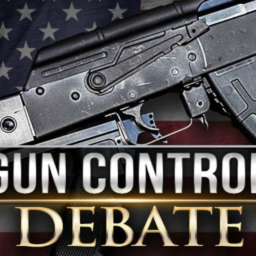

Michigan Man Sues Dick’s Over Gun Age Restriction Policy
Another lawsuit has been filed against Dick’s Sporting Goods over its policy barring gun sales based on age.


Age Restrictions On Gun Sales And The Law
Is it legal for retail businesses to restrict gun sales based on age? The short answer appears to be yes.
Laws That Forbid Americans From Joining In Boycotts Violate The First Amendment
Arguments advanced by those advocating a bill that would prevent Americans from participating in a boycott of Israel would not violate the First Amendment appear to be without merit.


Blocked Twitter Users Sue President Trump Alleging First Amendment Violation
Twitter users who have been blocked on the service by President Trump are suing him, claiming that their First Amendment rights have been violated.
Federal Government Ends Effort To Strip Redskins Of Their Trademarks
In light of a recent Supreme Court decision, the Federal Government is ending its defense of an effort to revoke the trademarks of the Washington Redskins.
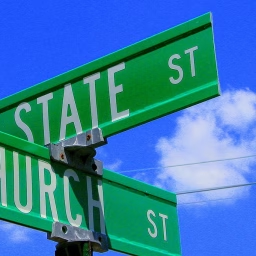

Supreme Court Strikes Down Bar On Secular Aid To Church-Run Schools
The Supreme Court ruled today that states may not exclude church-run schools from an aid program with a wholly secular purpose.
Supreme Court: Denial Of Trademarks Because They Are ‘Disparaging’ Violates First Amendment
The Supreme Court has ruled that the Federal Government cannot deny trademark protection because a requested trademark is “disparaging” to a racial or ethnic group.


Twitter Users Blocked By @RealDonaldTrump Claim First Amendment Violation
If Donald Trump blocks you on Twitter does that constitute a First Amendment violation? Two Twitter users say yes, but their argument is very weak.
Yes, The First Amendment Does Protect So-Called ‘Hate Speech’
Even the most offensive speech is protected by the First Amendment.


Washington Supreme Court Rules Against Florist Who Refused Service To Same-Sex Wedding
The Washington State Supreme Court has ruled against a florist who refused to provide services for a same-sex wedding.


Supreme Court To Hear Argument In Free Speech Case
An important free speech case is coming up this week at the Supreme Court.

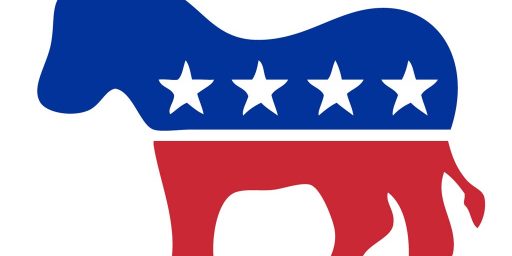
No, The Democratic Party Is Not ‘Decimated’
Reports of the demise of the Democratic Party have been greatly exaggerated.
Senate Republicans Vow No Hearings On Supreme Court Nominee From President Obama
Notwithstanding polling that indicates the American public disagrees with them, Senate Republicans emerged from a meeting today largely united on the idea of not giving any Supreme Court nominee named by President a hearing, or even the courtesy of a meeting.


Federal Appeals Court Ruling Raises Doubts About Rulings Against Redskins Trademarks
A ruling in an unrelated case raises serious doubts about the law used to revoke the Washington Redskins trademarks because they are allegedly ‘disparaging.’


Using The No-Fly List To Bar Gun Purchases Is Bad Policy, And Likely Unconstitutional
The Governors of Connecticut and New York are joining President Obama and Hillary Clinton in favor of a really bad idea.


No, We Shouldn’t Use The No-Fly List To Decide Who Can’t Buy A Gun
The no-fly list is a flawed, arbitrary mess that has kept innocent people from flying for years. Using it to deny people rights recognized by the Constitution is, quite honestly, insane.
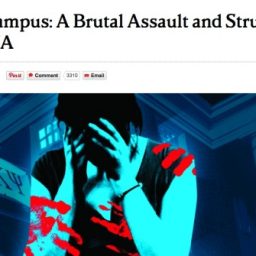

University Of Virginia Fraternity Files Defamation Suit Against Rolling Stone Over Campus Rape Story
Rolling Stone faces yet another legal headache over last year’s story about a campus rape that never took place.


Federal Judge Upholds Revocation Of Redskins Trademarks
A Federal Judge has uphold a Patent Office ruling revoking the Redskins Trademarks on the ground that they are “disparaging” toward Native Americans.
D.C. Metro Bans All Political Ads Rather Than Run Mohammed Cartoon Poster
The agency that runs Washington D.C.’s mass transit has banned all political ads after Pamela Gellar attempted to run an advertisement featuring a drawing of Mohammed.


University Of Virginia Dean Files Defamation Suit Against Rolling Stone
The first of what is likely to be many defamation suits related to Rolling Stone’s discredited campus rape story has been filed.
Rolling Stone, Campus Rape, And A Collapse Of Journalistic Ethics
A review of Rolling Stone’s now discredited report of a sexual assault at the University of Virginia reveals a shocking failure of journalistic ethics.
